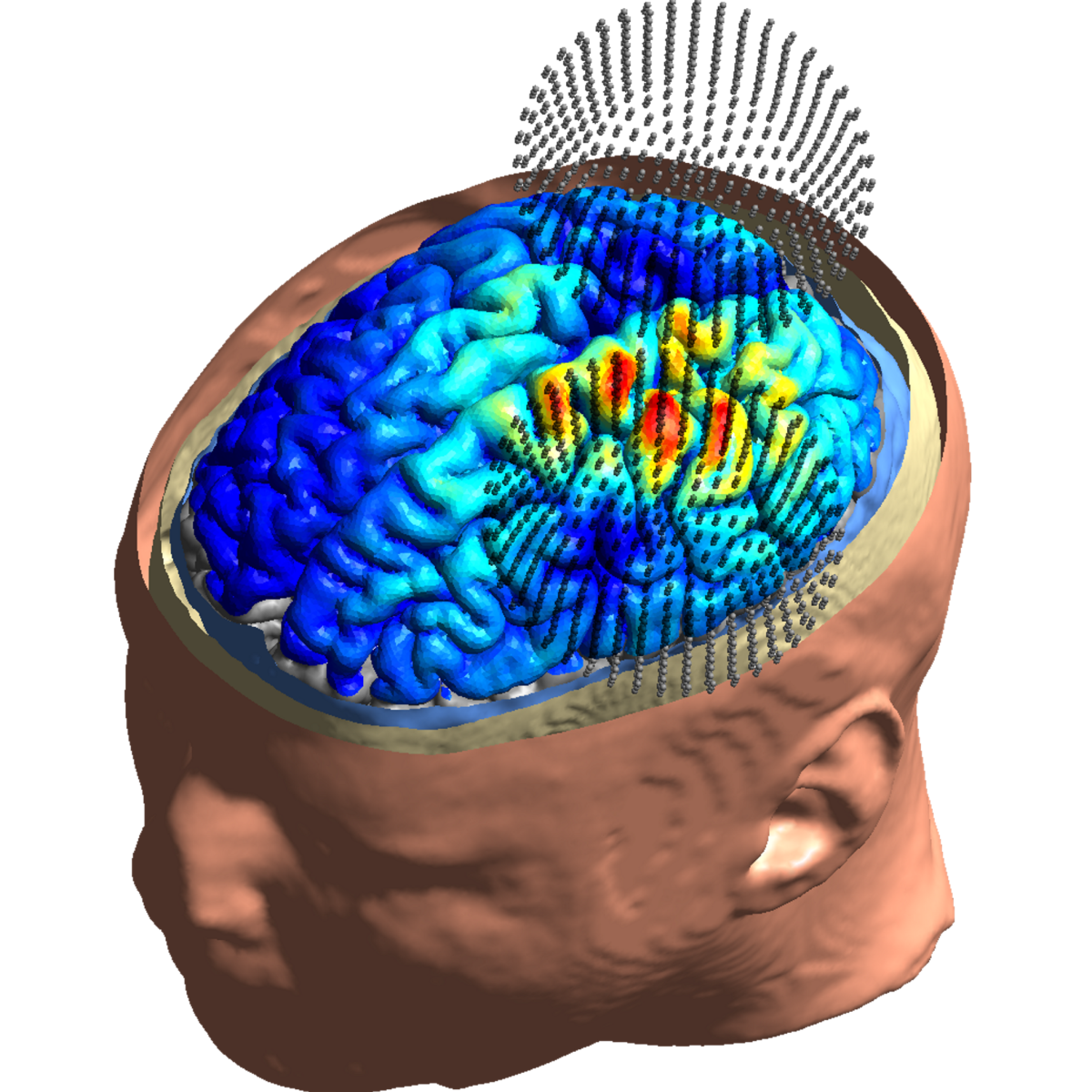Prof. Opitz receives nearly $7 million to advance brain stimulation technologies

In the last two years, BME Professor Alexander Opitz has received three grants totaling $6.8 million from the NIH Brain Initiative, an ambitious effort to advance scientists’ understanding of the human brain and develop new treatments for brain disorders.
Funding is supporting Dr. Opitz’s efforts to better understand the mechanisms of widely used brain stimulation methods and develop improved applications. Brain stimulation is increasingly explored as a therapeutic option for a range of psychiatric and neurological disorders.
Understanding how TMS interacts with brain tissue and circuits
In an R01 grant from the National Institute of Neurological Disorders and Stroke (NINDS), Dr. Opitz is studying the physics and neurophysiological effects of transcranial magnetic stimulation (TMS).
TMS is a non-invasive brain stimulation method that uses time-varying magnetic fields to induce an electric field in the human brain. It can target specific brain regions to stimulate the neurons in this brain area. However, the interaction between the physics of the stimulation and the neurophysiology is still poorly understood.
Using a combination of experiments and computational models, Dr. Opitz is working to advance our understanding of how TMS interacts with brain tissue and circuits. This can inform future, improved TMS therapies across a range of brain disorders.
Advancing an emerging, low-cost brain stimulation method
Through an additional R01 grant from the National Institute of Mental Health (NIMH), Dr. Opitz is working on another brain stimulation method called transcranial alternating current stimulation. This emerging technology could, due to its low cost and ease-of-use, result in many applications to affect brain activity.
Here, Dr. Opitz and his team are developing a new method to affect the synchronization across remote brain regions, which is known to be altered in disorders such as schizophrenia. Work ranges from theoretical models to animal experiments to human testing.
Software to precisely deliver electric or magnetic fields
Finally, in a third R01—another one from NIMH—Dr. Opitz is developing software to guide the precise delivery of electric or magnetic fields to target brain regions individualized to the specific patient. These computational methods are now widely used in the field and supported an online workshop held last year that drew more than 250 participants. For this year’s workshop, more than 300 participants from 20 countries have already registered.
More about Prof. Opitz’s research